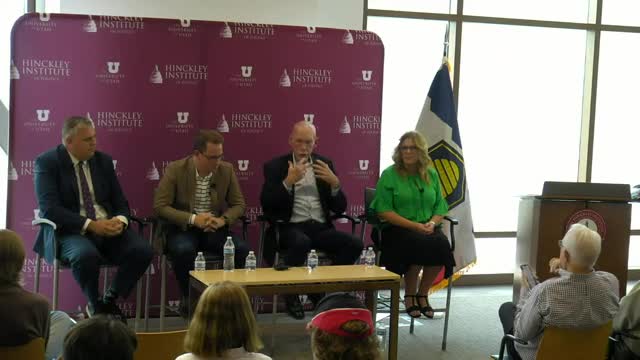Education Funding Debate Sparks Controversy Over Vouchers
September 20, 2024 | Hinckley Institute of Politics, Utah Lobbyist / NGO, Utah Legislative Branch, Utah
This article was created by AI summarizing key points discussed. AI makes mistakes, so for full details and context, please refer to the video of the full meeting. Please report any errors so we can fix them. Report an error »

In a recent government meeting, significant discussions centered around education funding and the implications of a new voucher program. A speaker from Michigan State University is scheduled to address the assembly in November, emphasizing the need for transparency in educational testing. He proposed that all schools, including those receiving vouchers, should report their testing results to assess the effectiveness of the program.
Concerns were raised regarding the potential impact of removing earmarks from the state budget, which currently allocates income tax revenue to public education. One participant questioned how this change could lead to increased funding for education, suggesting that without earmarks, the legislature could theoretically redirect funds elsewhere. The discussion highlighted the constitutional mandate that income tax should support public education, yet it was noted that the state has the flexibility to adjust tax rates, potentially undermining educational funding.
Rich Bridal, a participant in the meeting, criticized the lack of a comprehensive state education funding plan, linking it to historical resistance to committing resources for public education. He expressed skepticism about the voucher program, arguing that it diverts funds from public schools and raises concerns about the legislative process, which he described as rushed and lacking transparency.
Renee, another speaker, echoed these sentiments, questioning the state's claims of a budget surplus while emphasizing the constitutional requirement for income tax to support education. She argued that the swift passage of the voucher bill demonstrated a lack of democratic process and political will to adequately fund public education.
The meeting concluded with an interactive session where attendees expressed their support or opposition to an amendment related to the ongoing discussions, reflecting the community's engagement in the critical issue of education funding.
Concerns were raised regarding the potential impact of removing earmarks from the state budget, which currently allocates income tax revenue to public education. One participant questioned how this change could lead to increased funding for education, suggesting that without earmarks, the legislature could theoretically redirect funds elsewhere. The discussion highlighted the constitutional mandate that income tax should support public education, yet it was noted that the state has the flexibility to adjust tax rates, potentially undermining educational funding.
Rich Bridal, a participant in the meeting, criticized the lack of a comprehensive state education funding plan, linking it to historical resistance to committing resources for public education. He expressed skepticism about the voucher program, arguing that it diverts funds from public schools and raises concerns about the legislative process, which he described as rushed and lacking transparency.
Renee, another speaker, echoed these sentiments, questioning the state's claims of a budget surplus while emphasizing the constitutional requirement for income tax to support education. She argued that the swift passage of the voucher bill demonstrated a lack of democratic process and political will to adequately fund public education.
The meeting concluded with an interactive session where attendees expressed their support or opposition to an amendment related to the ongoing discussions, reflecting the community's engagement in the critical issue of education funding.
View full meeting
This article is based on a recent meeting—watch the full video and explore the complete transcript for deeper insights into the discussion.
View full meeting

